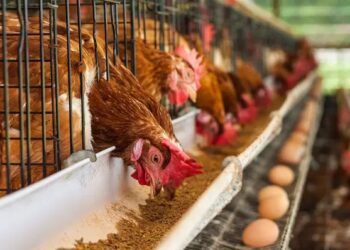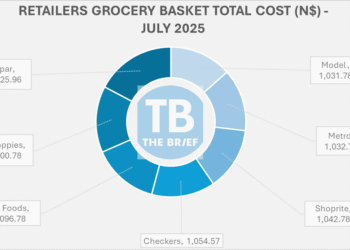
Mines and Energy Minister Tom Alweendo has temporarily banned Chinese firm Xinfeng Investment from exporting Lithium Ore to China until investigations are completed.Â
This follows reports that Xinfeng had been ferrying tonnes of Lithium Ore in trucks from the Uis area to Walvis Bay destined for China under the disguise of laboratory testing, which will determine components of the ore and guide its future operations.Â
“We made a preliminary investigation where a technical team was sent to the site and we found out that there have been a number of transgressions committed by Xinfeng, contravening the licence conditions. This was brought to my attention, and we reprimanded them, and we did so by calling them in, informing them of their transgressions before ordering them to stop,” said Alweendo.Â
“We were also told that they were exporting because they apparently received an export permit. And this is something we want to find out as to how and what are the conditions. The fact is, we have stopped the export, until such a time they comply, and also investigations are finalised. This is the directive I gave to the licensing department.”Â
Port data shows that Xinfeng exported 54,719 tonnes of Lithium ore to China and has brought in 80 brand new tipper trucks into the country for use at the mine.Â
Alweendo, however, clarified that no lithium has been exported yet.Â
“Although I don’t know how many tonnes of raw material they have shipped, however, what has been taken out is just ore, we don’t even know what type of product it contains,” he said, before emphasising that such types of raw materials are crucial as they are rare and being sought after by many countries.Â
“These critical raw materials are needed in making batteries and also in green hydrogen revolutions. These are the rare raw materials that the European Union (EU) is eyeing and would like to sign a memorandum of understanding.”Â
“In principle we have agreed that whatever the cost of making the batteries, they are to be manufactured within the country, not simply for us to export the raw materials. Not only the processing, but whatever that needs to be done should be undertaken and finalised here,” the minister said.Â
Meanwhile, the Mines and Energy Ministry has commissioned a study to interrogate the current licensing systems and close any gaps.Â
“The study will become our attitude on how we should start licensing these raw materials differently, not just the usual of dealing with the other mineral licences. So, this study will guide us whether we need to change our laws or enforce for us to achieve what we want, as we recognise, we have something that everyone needs. Therefore, this puts us in the driving seat where we can make crucial decisions for the greater benefit of the nation,” he stressed.Â
Xinfeng entered the local market last year after it acquired an exclusive prospecting licence from Orange River Mining Pty Ltd for N$50 million.











